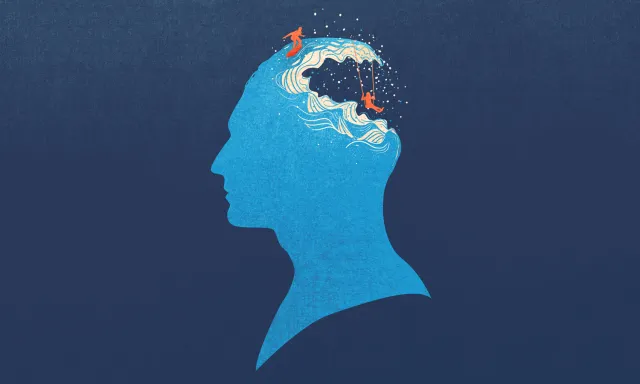The decisions that define our lives—from the careers we pursue to the relationships we build—aren’t made in a vacuum. Behind every choice lies the invisible architecture of personality, a complex system of traits, tendencies, and psychological patterns that guide us toward some paths while steering us away from others. Understanding this connection between who we are and what we choose can unlock profound insights into our own behavior and help us make more intentional decisions about our future.
The Psychology of Decision-Making
Personality psychology has long recognized that our fundamental traits influence how we perceive opportunities, assess risks, and ultimately make choices. The widely accepted Five-Factor Model identifies five core dimensions that shape human behavior: openness to experience, conscientiousness, extraversion, agreeableness, and neuroticism. Each of these traits acts as a lens through which we view the world and our place in it.
Consider openness to experience. Individuals high in this trait tend to seek novelty, embrace uncertainty, and push boundaries. They’re more likely to relocate to new cities, switch careers mid-life, or start unconventional businesses. In contrast, those lower in openness often find fulfillment in stability and tradition, making choices that prioritize security and familiar environments.
Similarly, conscientiousness—the tendency toward organization, discipline, and goal-directed behavior—profoundly impacts life choices. Highly conscientious individuals typically excel in structured environments and may gravitate toward careers in law, medicine, or finance. They’re more likely to save money consistently, maintain long-term relationships, and follow through on commitments. Those lower in conscientiousness might thrive in creative or entrepreneurial roles where flexibility and spontaneity are valued over rigid adherence to plans.
Risk-Taking and Reward-Seeking
One of the most dramatic ways personality shapes life choices is through our relationship with risk. Some individuals seem naturally drawn to high-stakes situations, while others instinctively avoid uncertainty. These differences aren’t just about courage or fear—they reflect fundamental differences in how our brains process potential rewards and threats.
Research in behavioral genetics suggests that risk tolerance has both inherited and environmental components. People with certain genetic variants may be more sensitive to dopamine, the neurotransmitter associated with reward-seeking behavior. This biological predisposition can influence everything from investment strategies to romantic choices, pushing some individuals toward exciting but uncertain paths while drawing others toward safer, more predictable options.
The entrepreneur who leaves a stable corporate job to start a tech company and the teacher who chooses job security over higher-paying but volatile industries are both making personality-consistent choices. Neither approach is inherently better—they simply reflect different ways of navigating life’s uncertainties based on individual psychological makeup.
Social Connections and Relationship Patterns
Personality also profoundly influences how we form and maintain relationships, which in turn shapes major life decisions. Extraverts, who gain energy from social interaction, often build large networks that open doors to new opportunities. They may be more likely to learn about job openings through connections, meet romantic partners at social events, or relocate based on social ties.
Introverts, while often having smaller social circles, tend to form deeper relationships that can provide different types of opportunities and support. Their preference for meaningful one-on-one interactions might lead them to careers in counseling, research, or creative fields where deep focus and authentic connection are valued over broad networking.
Agreeableness—the tendency to be cooperative and trusting—affects everything from negotiation strategies to conflict resolution approaches. Highly agreeable individuals might choose careers in helping professions or avoid competitive industries, while those lower in agreeableness might thrive in environments that reward assertiveness and strategic thinking.
The Neuroticism Factor
Perhaps no personality dimension has a more complex relationship with life choices than neuroticism—the tendency to experience negative emotions like anxiety, depression, and emotional instability. While often viewed negatively, moderate levels of neuroticism can actually enhance certain types of performance and decision-making.
Individuals higher in neuroticism may be more sensitive to potential problems and threats, leading them to make more cautious choices. This can result in better preparation for challenges, more comprehensive risk assessment, and greater attention to detail. However, excessive anxiety can also lead to missed opportunities and overly conservative decision-making.
Understanding your position on this dimension can help you recognize when your emotional patterns are serving you well and when they might be limiting your potential. Someone who realizes they tend toward anxious overthinking might deliberately seek advice from more optimistic friends before making major decisions, while someone prone to impulsive choices might benefit from building in waiting periods before committing to significant changes.
Cultural and Environmental Interactions
It’s crucial to recognize that personality doesn’t operate in isolation. Cultural background, socioeconomic status, and environmental factors all interact with personality traits to influence life choices. A highly open individual in a conservative community might express their trait differently than someone with the same personality living in a progressive urban environment.
These interactions can create fascinating tensions. Sometimes our personality pushes us toward choices that conflict with our environment, leading to internal stress but potentially also to personal growth and positive change. The small-town artist who moves to the city or the corporate executive who leaves to teach may be following personality-driven impulses that ultimately lead to greater life satisfaction.
Practical Implications
Understanding the relationship between personality and life choices offers several practical benefits. First, it can help explain past decisions, reducing self-criticism and increasing self-acceptance. That impulsive career change or cautious approach to dating might make more sense when viewed through the lens of personality.
Second, this awareness can improve future decision-making. By recognizing your personality patterns, you can better predict which choices are likely to bring satisfaction and which might lead to frustration. This doesn’t mean being limited by your traits, but rather making informed decisions that work with your natural tendencies rather than against them.
Finally, understanding personality’s role in decision-making can enhance empathy and communication with others. Recognizing that different people naturally approach choices differently can reduce judgment and improve relationships, whether personal or professional.
Embracing Your Authentic Path
The goal isn’t to let personality determine your fate, but to understand how these deep-seated patterns influence your choices so you can make more conscious decisions. Sometimes the most growth occurs when we gently push against our natural tendencies, while other times fulfillment comes from fully embracing them.
The key is developing what psychologists call “personality awareness”—understanding your own patterns without being trapped by them. This means recognizing when your natural tendencies serve you well and when they might be holding you back, then making intentional choices about when to follow your instincts and when to consciously choose a different path.
Your personality shapes your life choices, but it doesn’t have to limit them. By understanding this powerful connection, you can make decisions that honor who you are while still leaving room for growth, change, and the beautiful unpredictability of human experience. In the end, the most authentic life might not be one that perfectly matches your personality profile, but one that thoughtfully integrates your natural tendencies with your conscious aspirations and values.


